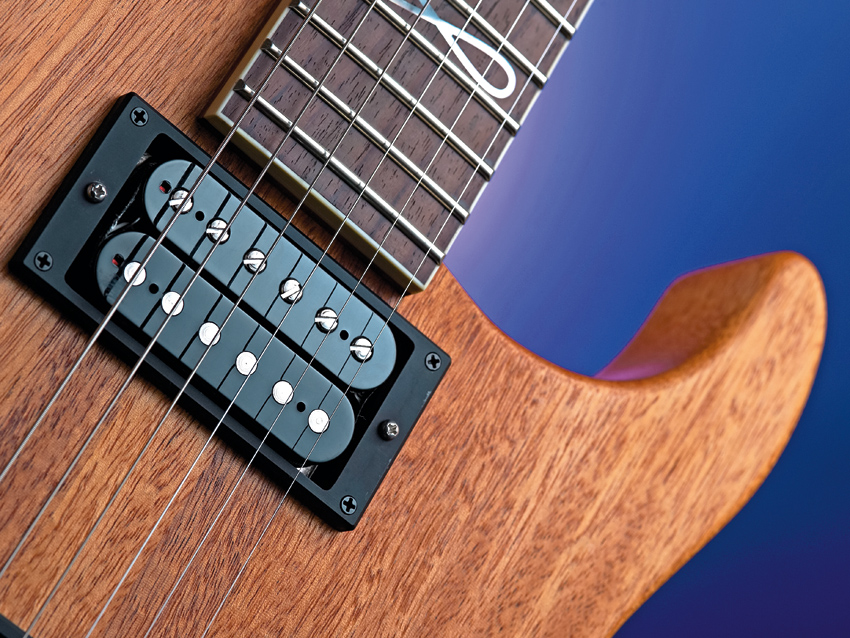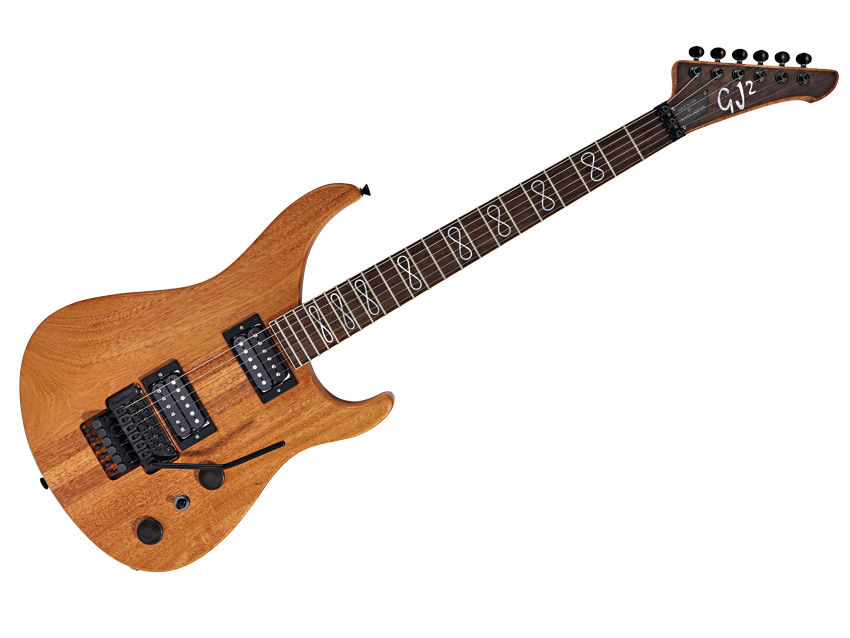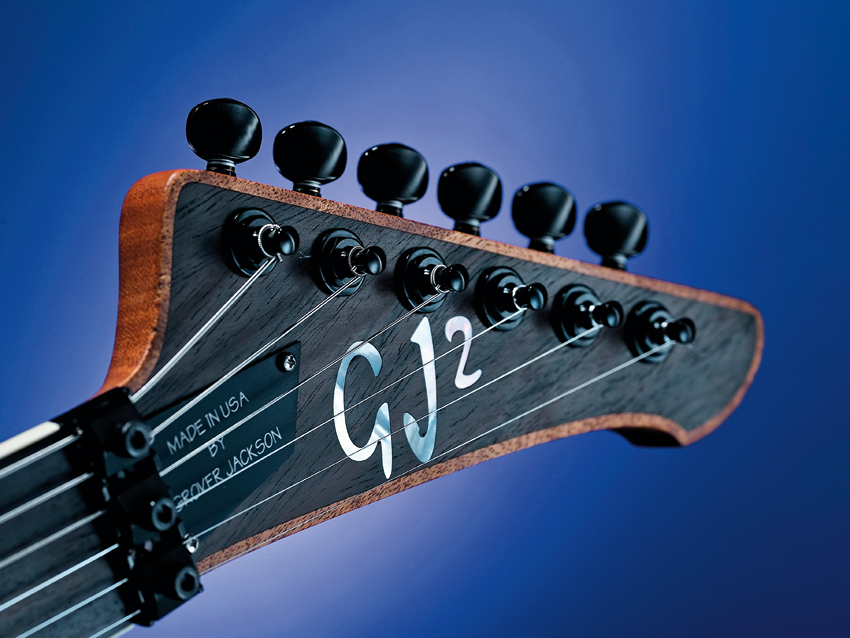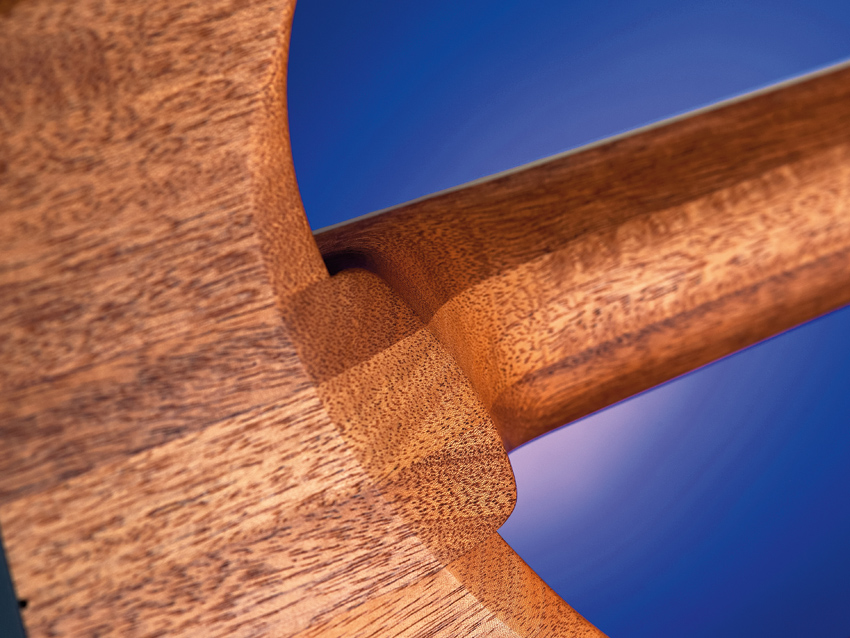MusicRadar Verdict
Very natural feeling thanks to the oil finish, this guitar plays wonderfully.
Pros
- +
The oil finish; the playability; the reasonable basic price.
Cons
- -
Tuning issues.
MusicRadar's got your back

GJ2 Arete Four-Star

GJ2 Arete Four-Star

GJ2 Arete Four-Star

GJ2 Arete Four-Star
When the history of the electric guitar is written, Grover Jackson will surely merit a chapter of his own.
With help and foresight from fellow innovator Wayne Charvel, he took the concept of a customised, hot-rodded rock axe and made it a reality, first with Charvel and subsequently with Jackson guitars. Such was the impact of the instruments that were being produced at the time, you just couldn't be considered a bona fide guitar hero without sporting a guitar with Grover's fingerprints on it - just ask Eddie Van Halen and Randy Rhoads, let alone Alex Lifeson, Warren DeMartini and even Gary Moore.
"The mahogany of the Four-Star (perhaps aided by the relative lack of finish) ushers a lively tone with strong mid-range punch and depth."
Ironically perhaps, Grover ended up treading the same path as his former business partner in that Fender MIC now owns not only the right to put his name on guitar headstocks, but many of his design aspects too. Charvel has pressed on, producing small numbers of custom-made instruments under the Wayne Guitars brand for some time, but Grover has mostly kept to the sidelines.
Until now - as he launches the GJ2 brand in partnership with former Fender man Jon Gold. The range of guitars carries many of the hallmarks of the custom classics of yore - plus a twist or two.
There are two price-points, Four-Star and Five-Star and, as befits Grover's Custom Shop heritage, just about every part of the spec can be altered and refined to a player's specific needs. All of the tonewoods, pickup configurations, finishes, livery and hardware options can be chosen from an extensive list and are priced accordingly.
The more affordable of the initial two GJ2 options is the Four-Star, which includes a mahogany body and through-neck alongside the double humbuckers in the basic spec. The construction sees a solid sandwich of three strips of the tonewood run from the tip of the headstock to the strap pin; options on our example include Infinity neck inlays and black hardware.
This guitar also shows off the finish option of hand-rubbed oil on the bare wood. It's applied beautifully and extends all the way up the bound neck.
Naturally, this enables you to see the full construction of the through-neck, not to mention the quality of the mahogany; the guitar is built very tidily throughout.
The neck's dimensions are the same as those of the Five-Star, with a wide feel and topped with a conical, 254-356mm (10-14-inch) radius - and a pleasantly palm-filling girth. Some players will doubtless prefer the feel of the unlacquered wood; that's up to you - all we'd say is that this is among the most engaging rock axes we've played.
Sounds
The mahogany of the Four-Star (perhaps aided by the relative lack of finish) ushers a lively tone with strong mid-range punch and depth. With a driving rock amp, the neck pickups retain breath, almost Slash-like (albeit without the ultimate Les Paul girth). The middle single-coil does increase versatility: a traditionally lighter, Strat-style tone whether used on its own or combined via the five-way switch with the humbuckers.
The action is low, so much so that the Four-Star frets out on the neck pickup if you pull back too enthusiastically on the bar, and again there's a discernible level of Floyd Rose string warble: too much in our opinion. It needs more tension in the bridge, which is but a set-up tweak away.
We played some frankly stunning Arete prototypes at this year's NAMM show, packed with the no-holds-barred, early custom shop excitement factor that remains lacking from so many modern rock guitars. Some set-up issues mean that this production model falls short of that remarkable first impression.
Nonetheless it packs a great list of options from which to spec up your very own instrument - a cornerstone of the whole boutique deal. With the basic-optioned Four-Star coming in at £1,999, the cost is not insignificant, but neither is it unreasonable.
Simon Bradley is a guitar and especially rock guitar expert who worked for Guitarist magazine and has in the past contributed to world-leading music and guitar titles like MusicRadar (obviously), Guitarist, Guitar World and Louder. What he doesn't know about Brian May's playing and, especially, the Red Special, isn't worth knowing.
“Built from the same sacred stash of NOS silicon transistors and germanium diodes, giving it the soul – and snarl – of the original”: An octave-fuzz cult classic returns as Jam Pedals resurrects the Octaurus
What’s the buzz? Meet Yellowjacket, Cherry Audio's recreation of EDP’s trend-setting Wasp from 1978
“A fabulous trip through all eight songs by 24 wonderful artists and remixers... way beyond anything I could have hoped for”: Robert Smith announces new Cure remix album









